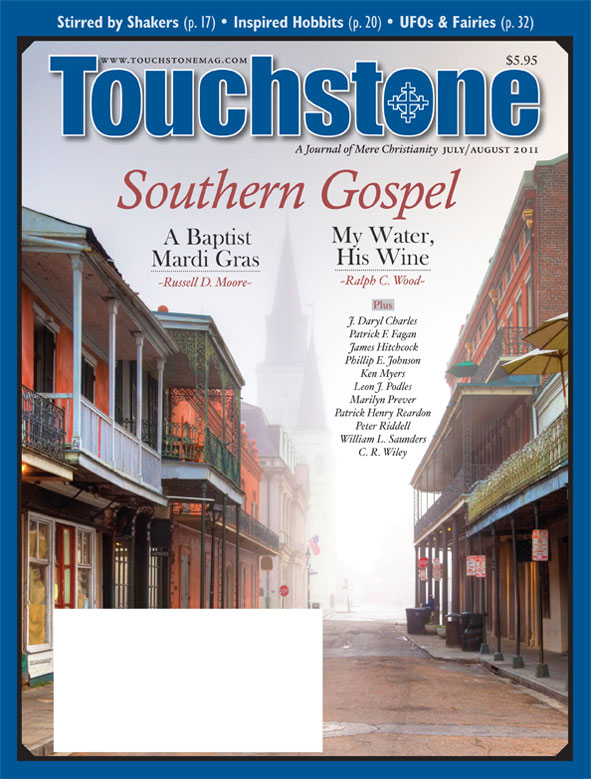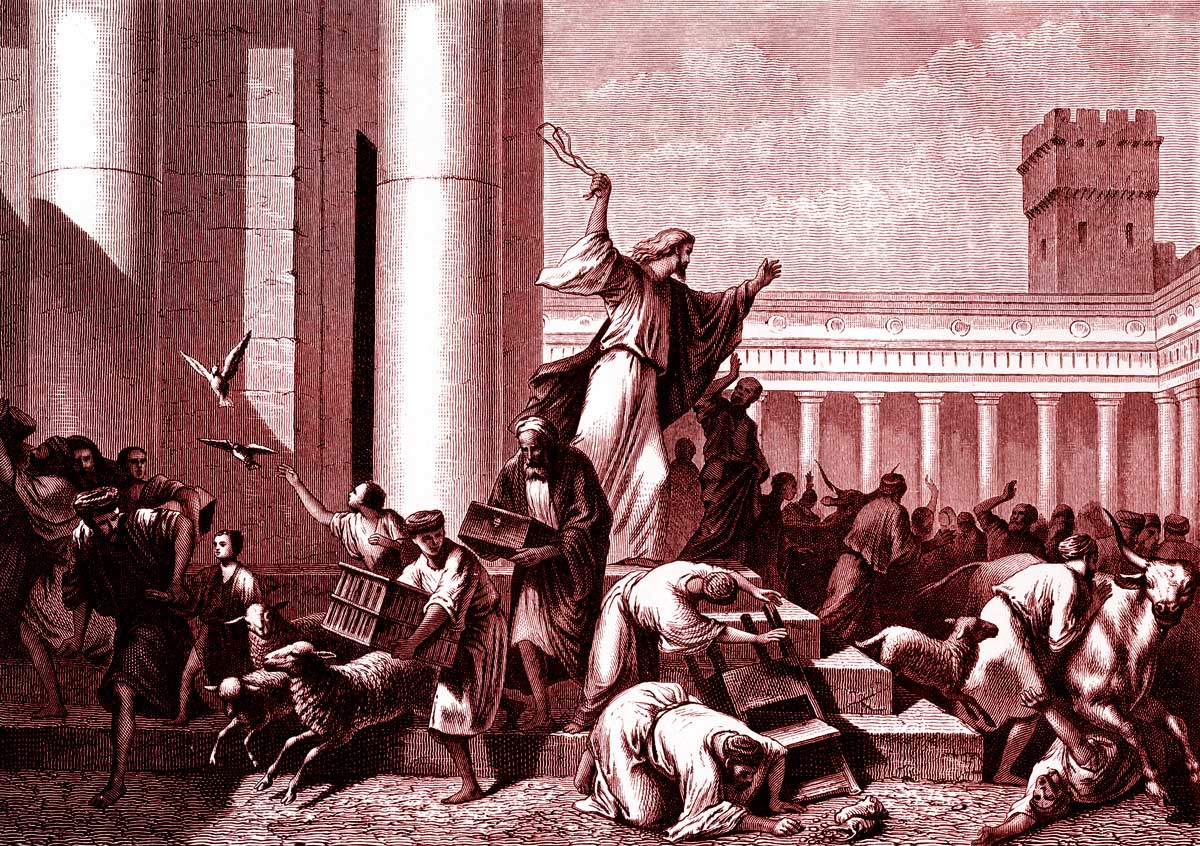Contours of Culture
Bobos, but Not Paradise
by Ken Myers
My favorite thinkers are “Big Picture” thinkers. Reading their books, one finds insights into the connections between aspects of life that are too often treated in piecemeal fashion. In such books, trends in the arts are correlated with developments in technology, characteristic changes in the structure of relationships are shown to have links with patterns of international trade, and secular political movements are discovered to have a kinship with theological speculation or liturgical practices.
Some Big Picture thinkers are misleading and foolish, especially when they trace all undesirable phenomena to a single cause (Jews, communists, the pope, Protestants, big business, technology, and the abandonment of the gold standard have all served in this role). Such ideologues typically impose a predetermined framework on history and experience without taking the time to understand the internal logic and meaning of specific events, trends, or institutions. Their books tend to sell in huge numbers for a brief time; then—not too many years later—they are relegated to tables in used bookstores, having survived, at best, as a source of curiosity or amusement, or, more darkly, as an embarrassed reminder of some exhausted enthusiasm.
A Rage Against Order
But there are Big Picture thinkers whose work seems to become deeper and more insightful over time. I think that Daniel Bell will come to be seen as one such figure. When he died in January of this year, Sam Tanenhaus, editor of the New York Times Book Review, claimed that Bell “was heir to the vanishing tradition of systematizers or master builders—Hegel and Marx, Durkheim and Weber, Freud and Nietzsche, Dewey and Veblen.” As befits such a thinker, Bell’s major books “contain whole libraries of thought, ancient and modern, on philosophy, sociology and psychology, economics and technology, history and law, with excursions into literary theory and computer science.”
The volume by Daniel Bell that has most influenced my own perception of the meaning of our times is his 1976 book The Cultural Contradictions of Capitalism. I know of no other book that outlines more compellingly the trajectory of American cultural changes through the twentieth century, especially the way in which all social, political, and cultural life came to be dominated by a “rage against order.” Order of any kind—cosmic, legal, customary—had to be fought because order restrained the sovereign selves that were the organizing reality of modern culture.
The “contradiction” in the book’s title comes from Bell’s observation that in early capitalist societies, self-control and delayed gratification were significant features of the ideal character:
The unrestrained economic impulse was held in check by Puritan restraint and the Protestant ethic. One worked because of one’s obligation to one’s calling, or to fulfill the covenant of the community. But the Protestant ethic was undermined not by modernism but by capitalism itself. The greatest single engine in the destruction of the Protestant ethic was the invention of the installment plan, or instant credit. Previously one had to save in order to buy. But with credit cards one could indulge in instant gratification.
But instant credit wasn’t the sole culprit. Throughout the twentieth century, numerous interlocking technical, social, and economic developments created a climate in which the self-denial once central to capitalist societies was replaced by hedonism. A social order geared toward a productive way of life was disappearing, and, in its place,
a consumption society was emerging, with its emphasis on spending and material possessions, and it was undermining the traditional value system, with its emphasis on thrift, frugality, self-control, and impulse renunciation. Integral to both social changes was a technological revolution, which, through the automobile, the motion picture, and the radio, broke down rural isolation and for the first time fused the country into a common culture and a national society. This social transformation was responsible for the end of Puritanism as a set of practices that could support the traditional value system.
Ken Myers is the host and producer of the Mars Hill Audio Journal. Formerly an arts editor with National Public Radio, he also serves as music director at All Saints Anglican Church in Ivy, Virginia. He is a contributing editor for Touchstone.
subscription options
Order
Print/Online Subscription

Get six issues (one year) of Touchstone PLUS full online access including pdf downloads for only $39.95. That's only $3.34 per month!
Order
Online Only
Subscription

Get a one-year full-access subscription to the Touchstone online archives for only $19.95. That's only $1.66 per month!
bulk subscriptions
Order Touchstone subscriptions in bulk and save $10 per sub! Each subscription includes 6 issues of Touchstone plus full online access to touchstonemag.com—including archives, videos, and pdf downloads of recent issues for only $29.95 each! Great for churches or study groups.
Transactions will be processed on a secure server.
more from the online archives
calling all readers
Please Donate
"There are magazines worth reading but few worth saving . . . Touchstone is just such a magazine."
—Alice von Hildebrand
"Here we do not concede one square millimeter of territory to falsehood, folly, contemporary sentimentality, or fashion. We speak the truth, and let God be our judge. . . . Touchstone is the one committedly Christian conservative journal."
—Anthony Esolen, Touchstone senior editor










